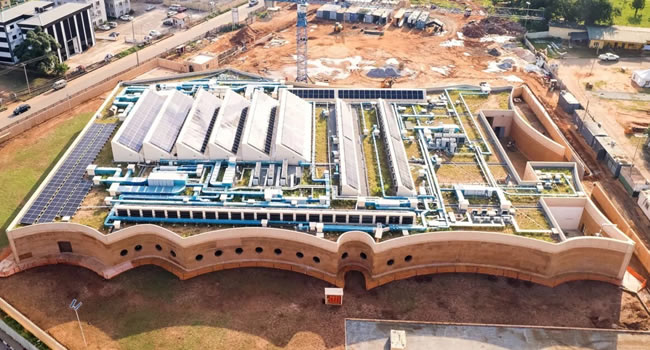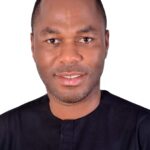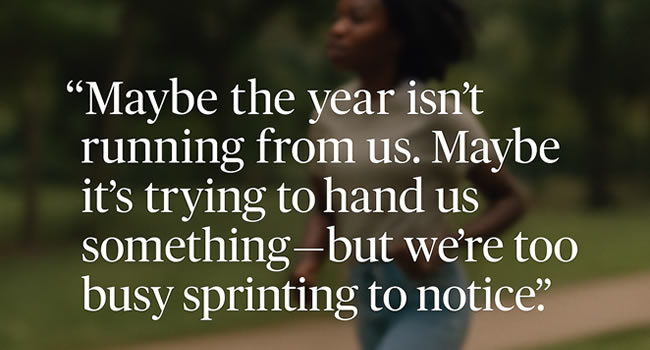Who truly owns the Museum of West African Art now standing where Benin’s Central Hospital once breathed life into generations.?
What began as EMOWAA — the Edo Museum of West African Art — presented as a public-spirited cultural renaissance for a historic kingdom, has quietly, almost surgically, transformed into MOWAA, a private trust-controlled institution bearing no constitutional link to the people whose land, treasury, and heritage birthed it. In the small print of this transformation lies one of the most elegant acts of institutional sleight-of-hand since colonial administrators declared the Oba’s lands “Crown land” in 1897 and took them without firing a second shot.

The deception rests on a simple but profound shift: the disappearance of the “E”. Edo State invested in E-MOWAA. Edo State’s legislature was briefed about E-MOWAA. Edo State’s Executive Council approved E-MOWAA. Edo State people accepted E-MOWAA. And suddenly, after billions were committed and land worth billions more was transferred, the name — and with it the ownership — curiously mutated into MOWAA, a project now described by its handlers as “a private, independent, not-for-profit initiative.”
This is not semantics. It is ownership.
Under the Land Use Act 1978 (Sections 1, 22, 28), land vested in government — particularly land compulsorily acquired or inherited from previous public purposes — must be used strictly for overriding public interest, defined in the Act as purposes that benefit the public collectively: hospitals, schools, public institutions, infrastructure. Someone needs to approach the court to legally reclaim the land, and the museum, for Edo state. A private museum, even when styled as “non-profit”, cannot constitutionally supersede a public hospital. The Act goes further: where land ceases to be used for the public purpose for which it was acquired, the acquisition becomes ultra vires, and the land must revert either to the State for another public purpose or to the original owners, a principle reinforced in cases like Olatunji v Military Governor of Oyo State (1994) and Adeniran v Lagos State Development & Property Corporation (2018). The shift of Central Hospital land to a museum now held under a private trust amounts to purpose diversion, making the acquisition ultra vires, since public land taken for a public purpose cannot end in private control, whether profit or non-profit. By the principle in AG Bendel v Aideyan, (1989) such a conversion would likely be struck down if challenged.
This is why the switch from EMOWAA to MOWAA is not a cosmetic adjustment but a legal severance. EMOWAA had the cloak of overriding public interest. MOWAA does not. EMOWAA justified the conversion of a hospital into a museum, even though this is debatable. MOWAA invalidates that justification, without debate. And at the center of that switch sits a private trust — the Legacy Restoration Trust (LRT) — whose governance structure, beneficial ownership, trustee compensation, and related-party transactions remain largely sealed off from public scrutiny. No audited financials are in the public domain. No legislative approval exists transferring Edo state’s equity in EMOWAA into any private trust. No enabling law empowers former Governor Godwin Obaseki to hive off public land into private heritage vehicles.
Yet it happened, under the radar, beneath the noise, inside the very architecture of public trust.
When one examines the network of names behind that trust, the picture becomes even less comfortable, more gory. There is Philip Iwuala Iheanacho, British national of Nigerian descent, who built Afrinvest UK and later appeared in virtually every major Edo-linked deal: Seven Energy, Azura-Edo IPP, Benin Enterprise Park, and finally MOWAA. There is Godwin Obaseki, former governor and founding figure of Afrinvest West Africa, whose administration midwifed the transfer of Central Hospital land to LRT. And there is Ike Chioke, Group Managing Director of Afrinvest West Africa, completing a triangle BusinessDay once described as the “three personalities around whom the Afrinvest story revolves.”
The Afrinvest–Iheanacho–Obaseki corporate family tree spans nearly three decades. That a cultural institution built with Edo state money and Edo state land ended up controlled through a trust featuring one of these long-time associates (even though none of them is native to Edo) is not illegal by itself — but it raises conflict-of-interest concerns that any serious legislature or ethics board would interrogate. As far back as A.G. Ondo v A.G. Ekiti (2001) and Fawehinmi v Akilu (1987), Nigerian jurisprudence affirmed that the appearance of conflict in public resource management is itself sufficient grounds for inquiry. The extant public procurement laws in Nigeria clearly outlaws such conflicts of interest.
The facts are not in dispute: Edo State spent roughly ₦3.8 billion on the project. Edo State donated land valued at ₦6 billion. Edo State provided political legitimacy, planning waivers, and infrastructural support. And yet Edo State, the Palace of the Oba of Benin, and the Edo state people have been told — with disturbing confidence, nauseating arrogance and sordid effrontery — that MOWAA is not theirs, will not be theirs, and was never intended to be theirs.
This is not merely improper. It is morally untenable, legally indefensible and totally reprehensible. A deeper truth is that there would not have been serious issues with the triumvirate conversion of this public assets to private use, as they did with AZURA, but for the arrogance of bringing down a hundred years old public hospital and replacing it with a private museum.
Benin City is not a stranger to cultural theft. In 1897, soldiers carted away bronze memories. In 2020, paperwork carted away institutional control. The first theft was violent, the second administrative. The first was colonial, the second domestic. Both relied on silence. Both relied on public confusion. Both relied on the people not asking — or not being allowed to ask — the most basic question: Who owns this?
And so I ask again, from this cassava farm where truth is easier to touch than asphalt: Who owns MOWAA? Not in press statements. Not in donor brochures. Not in glossy architectural animations. But in law. In equity. In ethics. In the soul of a people whose heritage is not an investment instrument.
The answer is simple: Edo owns EMOWAA. Edo funded EMOWAA. Edo gave land for EMOWAA. Edo consented to EMOWAA. MOWAA belongs to Edo State and must return to its true owner, either as MOWAA or EMOWAA.
What Edo never approved — never imagined — was the quiet unlawful conversion of a public cultural institution into a private trust run by individuals linked by long-standing business relationships to the governor who championed the project but continues to pretend that he’s not the ghost in the Museum, even though everyone can now see the ghost’s fingernails.
A museum is meant to preserve history, not rewrite it. A government is meant to protect heritage, not privatize it. A people are meant to inherit their memory, not beg to access it.
If MOWAA is built on Edo soil, with Edo money, on land once held by the Oba and later vested in the State for public good, then the only lawful and moral conclusion is that it must return to Edo ownership — not demolished, not disrupted, but reclaimed, regularized, and restructured into a truly public institution with Palace and People’s representation, civic oversight, and full transparency, under the control of Edo State just like the British Museum is under the control of the British government.
Benin has suffered enough theft for ten lifetimes. The bronzes were taken once. The museum meant to receive them must not be taken again.
From this my farm in Ewu, where cassava tubers do not lie and the soil rewards only what is planted honestly, I write this as both witness and free born citizen:
MOWAA must return to Edo State — not as a gesture, but as justice.
Saintmoses Eromosele
Writing from his Cassava Farm in Ewu
talktosme@gmail.com 0 807 943 6049
Saintmoses Eromosele
Saintmoses Eromosele is a Nigerian scholar, community organiser, and entrepreneur. He is the Executive Director of the Oneghe Sele Foundation and CEO of multiple ventures spanning education, healthcare, property, media, and technology. A trained legal mind with academic grounding in law, sociology, economics, management, and public administration, he is widely known for his advocacy on justice, civic responsibility, and equitable governance. He writes from his cassava farm in Ewu, Edo State.





